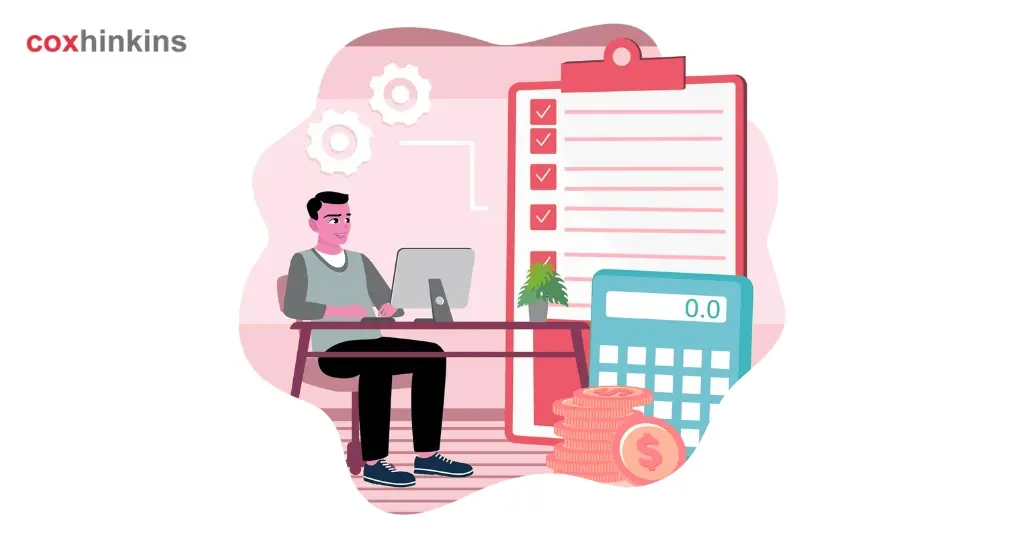-
Fil d’actualités
- EXPLORER
-
Pages
-
Groupes
-
Evènements
-
Reels
-
Blogs
-
Offres
-
Emplois
-
Forums
-
Film
Ecommerce Bookkeeping and Accounting Services Every Seller Needs

Running an ecommerce business isn’t just about building a great online store and driving traffic—it’s also about keeping your finances in order. Whether you’re selling on Amazon, Shopify, Etsy, or multiple platforms at once, the financial side of ecommerce can quickly become overwhelming. That’s why ecommerce bookkeeping and accounting services are so valuable. They help sellers stay compliant, organized, and profitable while freeing up time to focus on growth.
Why Ecommerce Accounting Matters
Ecommerce is fundamentally different from traditional retail. Online sellers deal with high transaction volumes, multiple payment processors, shipping costs, returns, and state-by-state tax compliance. Without proper accounting systems, it’s easy to lose track of income, expenses, and obligations.
Why ecommerce accounting matters comes down to three things:
- Accuracy – Prevent costly errors in reporting and tax filing.
- Visibility – Understand true profitability across platforms.
- Strategy – Use financial insights to make smarter business decisions.
In short, accurate accounting isn’t just about compliance—it’s about making your ecommerce business more resilient and scalable.
Ecommerce Bookkeeping Basics
Ecommerce bookkeeping is the daily process of recording sales, expenses, and inventory. For online sellers, it provides:
- Cash Flow Monitoring – Ensures you always know when money is coming in and going out.
- Inventory Tracking – Matches sales data with cost of goods sold (COGS) for accurate margins.
- Expense Management – Identifies where you’re overspending and where to cut back.
- Financial Forecasting – Supports growth planning and investment decisions.
Because ecommerce bookkeeping involves thousands of small transactions, manual spreadsheets rarely cut it. Integrating accounting software with Amazon or Shopify ensures transactions sync automatically and stay accurate.
Maximizing Ecommerce Tax Deductions
Tax season can be stressful, but accurate records open the door to valuable ecommerce tax deductions. Some common deductions for U.S. sellers include:
- Cost of Goods Sold (COGS)
- Shipping and packaging expenses
- Advertising and marketing campaigns
- Software and platform subscriptions
- Home office deductions
- Professional services like accountants or legal advisors
Claiming all eligible deductions can significantly reduce your tax burden. But without clear bookkeeping, many sellers miss out on these opportunities.
Ecommerce Accounting Services Tailored for Sellers
General accounting isn’t always enough for online sellers. Specialized ecommerce accounting services provide features like:
- Platform Integration with Amazon, Shopify, and eBay
- Sales Tax Compliance across multiple states
- Automated Reporting for profits, fees, and deductions
- Inventory and COGS Tracking for accurate gross margins
- Growth Advisory to support scaling operations
Outsourcing to specialists allows sellers to focus on sales while ensuring their financial foundation is strong.
Amazon Accountants: Navigating FBA Complexities
Amazon sellers, especially those using FBA, face unique accounting challenges. Amazon accountants understand how to handle:
- Settlement reconciliations
- FBA storage and fulfillment fees
- Advertising costs
- Refunds and returns
- SKU-level profitability
A general accountant may not grasp Amazon’s payout structures or fee systems, but a specialized Amazon accountant can help you stay profitable and compliant.
Shopify Accounting: Simplifying Direct-to-Consumer Brands
Shopify powers many direct-to-consumer businesses, but its payouts don’t always align neatly with sales due to refunds, discounts, and processing fees. Shopify accounting professionals help by:
- Reconciling Shopify deposits with actual revenue
- Tracking discounts and chargebacks
- Integrating Shopify data with accounting software
- Monitoring margins across different products
For sellers running multi-channel operations, Shopify accountants consolidate data across platforms, giving a clearer picture of overall performance.
Choosing the Right Ecommerce Accounting Partner
When searching for an accounting partner, online sellers should look for:
- Ecommerce Experience – Knowledge of Amazon, Shopify, and multi-platform selling.
- Technology Skills – Ability to use QuickBooks, Xero, A2X, or TaxJar integrations.
- Tax Expertise – Familiarity with U.S. federal and state tax compliance.
- Scalability – Support for businesses as they grow.
- Proactive Guidance – Year-round support, not just tax filing.
The right partner can save thousands of dollars each year, reduce stress, and provide the financial clarity needed to grow with confidence.
Final Thoughts
The ecommerce industry is thriving in the U.S., but with growth comes financial complexity. From ecommerce bookkeeping and tax deductions to specialized Amazon accountants and Shopify accounting, having the right financial support is no longer optional—it’s essential.
By investing in professional ecommerce accounting services, sellers gain accurate data, smarter tax planning, and the ability to scale with confidence. Instead of scrambling during tax season or worrying about compliance, you can focus on what truly matters—growing your online business.
- AI
- Vitamins
- Health
- Admin/office jobs
- News
- Art
- Causes
- Crafts
- Dance
- Drinks
- Film
- Fitness
- Food
- Jeux
- Gardening
- Health
- Domicile
- Literature
- Music
- Networking
- Autre
- Party
- Religion
- Shopping
- Sports
- Theater
- Wellness


